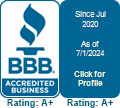
The Federal Aviation Administration (FAA) plays a pivotal role in the aviation industry, setting the standards for flight operations, aircraft maintenance, and pilot conduct. For private jets, these regulations ensure the highest levels of safety and efficiency in the sky. The FAA’s comprehensive framework covers everything from aircraft design and maintenance to pilot certification, creating a safe and reliable flying environment for both passengers and crew.
Drawing from our years of experience in the private jet charter industry, we have navigated the complexities of FAA regulations in diverse scenarios. From coordinating emergency flights during unprecedented events to customizing travel experiences for high-profile clients, my journey has equipped me with a nuanced understanding of this dynamic industry. This extensive experience informs every decision at JetLevel Aviation, ensuring that our services are not just compliant with regulations but are also tailored to meet the unique needs and preferences of our clients.
Private Jet Certification and Standards
Private jets must adhere to stringent certification standards set by the FAA. These standards encompass a wide range of requirements, including structural integrity, engine performance, and safety features. Certification ensures that every private jet meets the highest levels of safety and performance before it takes to the skies. It’s a rigorous process that guarantees passenger safety and aircraft reliability.
Safety Protocols for Private Jets
Safety is paramount in private aviation. Private jets are subject to thorough safety protocols, which include regular maintenance checks, emergency procedure training, and adherence to strict operational guidelines. These measures are in place to mitigate risks and ensure the safety of everyone on board. From pre-flight inspections to in-flight safety procedures, every aspect of a private jet journey is governed by these protocols.
Operational Limitations and Restrictions
Private jet operations are not without their limitations and restrictions. These range from flight hour limitations for pilots to restrictions on flying in certain weather conditions or airspace. Understanding these limitations is crucial for safe and compliant operations. They are designed to minimize risks and enhance safety for passengers and crew alike.
Maintenance and Inspection Requirements
Regular maintenance and rigorous inspection are key components of private jet operations. These requirements ensure that every component of the aircraft, from the engines to the electronics, is in top working condition. Scheduled maintenance checks, along with unexpected repairs, are part of the ongoing process to maintain the high safety standards set by the FAA.
Pilot Qualifications and Training
The pilots at the helm of private jets are highly trained professionals. Their qualifications include extensive training, certification, and regular skill assessments. They are trained to handle a variety of situations, from adverse weather conditions to emergency scenarios. This level of training ensures that private jet pilots are among the best in the aviation industry.
Our pilots undergo advanced training programs that include not only FAA-mandated courses but also specialized simulations for various flight scenarios. With our years of experience in the industry, we have incorporated real-world insights into these training modules, ensuring our pilots are prepared for any situation. This depth of training extends to mastering the latest avionics systems, understanding the nuances of international flight regulations, and excelling in customer service, making our pilots among the best-trained in the industry.
Navigating Complex Airspace Rules
Airspace regulations can be complex, especially for private jets that traverse various regions and countries. Pilots and operators must be well-versed in these rules to ensure compliance and smooth operations. This includes understanding air traffic control instructions, adhering to flight paths, and respecting restricted airspace zones.
Understanding the Cost of Chartering a Private Jet
When considering private jet travel, it’s essential to be aware of the associated costs. These can vary based on factors like aircraft type, flight duration, and additional services. To get a clear picture of what chartering a private jet might cost you, visit JetLevel’s page on the Cost of Chartering a Private Jet. This resource offers valuable insights into pricing and what factors contribute to the overall cost of a private jet charter.
Request a Personalized Quote
Every private jet journey is unique, and so are its costs. For a tailored estimate that matches your specific travel needs, it’s best to Request a Quote directly from our website. This service provides you with a detailed breakdown of costs, ensuring that your private jet experience aligns with your expectations and budget.
Benefits of Empty Leg Flights
For those looking for more cost-effective private jet options, empty leg flights are a great choice. These are flights scheduled to fly empty, either returning to their base or repositioning for their next charter. By booking an Empty Leg Flight, you can experience the luxury of private jet travel at a fraction of the regular cost. It’s an excellent way to enjoy the perks of private aviation without the full expense.


